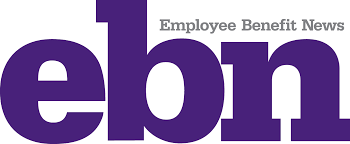‘Embers Around Our Faces’: Amanda’s Story
Amanda’s family fled when LA’s wildfires swept through their tight-knit neighborhood, engulfing many homes in flames. Read how they started over, even against the odds.
Republican Budget Bill Could Change Medicaid for 7 Million
The U.S. House of Representatives narrowly passed a sweeping Republican budget bill early Thursday morning, setting up the possibility of major changes to the Medicaid program that could impact as many as 7 million people, according to the Congressional Budget Office.
VyStar Credit Union: Driving Financial Fitness for Every Member
As a new Financial Health Network Member, VyStar drives savings, community action, and stronger financial futures for its diverse membership.
Voices of Change: Get Inspired by 7 Past EMERGE Speakers
As the countdown to this year’s EMERGE begins, we’re shining a spotlight on seven unforgettable speakers from past events who continue to spark change.
Surviving LA’s Wildfire: Bryce’s Story
Facing LA's wildfires, Bryce had an impossible choice: stay or flee? Hear their firsthand account of surviving the blaze, grappling with the decision to stay, and facing financial hardship. A story of living through a climate disaster and the resulting deep-seated uncertainty about the future.
New Frontiers in Financial Inclusion
Opportunities revealed in the FDIC’s latest survey could spark fresh ways for banks to reach “last-mile customers”.
The $5 Limit on Overdraft Fees May Soon Be Struck Down
The cap, approved last year, never took effect, though some banks voluntarily lowered or eliminated their fees. Here are some tips on how to avoid or reduce your costs.
Behavioral science strategies for designing retirement plans
Retirement is top of mind for Americans — and for good reason. Among eight key financial concerns, U.S. adults consistently rank saving for retirement as their number one worry. Yet, despite this awareness, many employees fall short of their savings potential, hindered by complex decisions about how much to contribute or which investments to choose.
Why Every Team Needs a Financial Health Pro (Including Yours)
This month, we're celebrating Financial Capability Month by highlighting how dedicated financial health roles – and a clear framework like the FinHealth Maturity Assessment Program (MAP) – help organizations build stronger infrastructure, deliver real impact, and create lasting financial health for both employees and customers.
Building a Better Future: How Clear Standards Unlock Financial Health for All
This month, we’re celebrating Financial Capability Month by highlighting how a set of financial health standards will provide essential resources for financial institutions and employers in their work to drive financial health impact for their customers and employees.
Beatty Leads Bipartisan Resolution Championing Financial Health for Every American
Today, Financial Literacy and Wealth Creation Caucus Co-Chairs Congresswoman Joyce Beatty (OH-03) and Congresswoman Young Kim (CA-40) introduced H.Res.292, a resolution to recognize April as Financial Literacy Month to increase public awareness of the value of financial capability and the need for sound money management practices.
When the Next Storm Comes, Will Families Be Financially Ready?
Extreme weather events and a changing climate are taking a toll on household finances, disproportionately impacting vulnerable communities. Learn how innovative financial tools and cross-sector collaboration can strengthen resilience.











